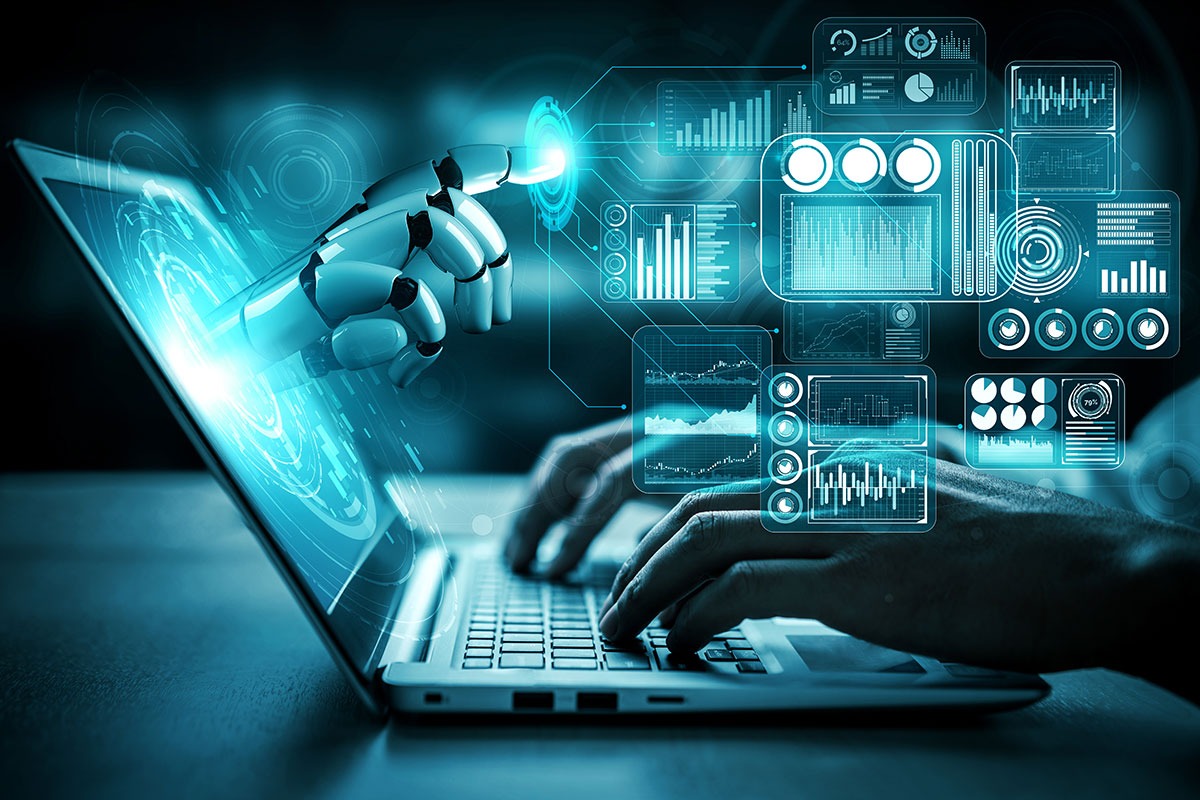
The Role of AI and Machine Learning in Modern Marketing Practices
Author: GWP Inc.
Date: May 23, 2023
Category: Trends
Have a Question?In today's fast-paced and technology-driven world, artificial intelligence (AI) and machine learning (ML) have emerged as powerful tools that are transforming various industries, including marketing. With the advent of AI and ML, modern marketers are able to leverage advanced algorithms and data analytics to enhance customer experience, improve marketing campaigns, and gain a competitive edge in the market. This blog explores the profound impact of AI and machine learning on modern marketing practices, highlighting key concepts, benefits, and real-world examples.
Customer Experience
One of the key areas where AI and ML have revolutionized marketing is customer experience. By analyzing vast amounts of customer data, AI-powered systems can identify patterns, preferences, and behaviors to deliver personalized experiences. This enables marketers to target the right audience with the right message at the right time, thereby enhancing customer satisfaction and loyalty. For instance, AI-driven recommendation engines use customer data and predictive analytics to offer tailored product recommendations, based on individual preferences and purchase history.
Data Analysis
Another crucial aspect where AI and ML have made significant strides is in data analysis. Traditional marketing methods often struggle to process and make sense of the large volumes of data available today. However, AI and ML algorithms excel at extracting insights from complex datasets, enabling marketers to make data-driven decisions and optimize their marketing efforts. By leveraging historical data and real-time information, marketers can create effective marketing strategies, identify emerging trends, and adapt their campaigns to meet the evolving needs of their target customers.
Furthermore, AI and ML have transformed content creation and customer service in the marketing industry. Natural language processing (NLP) algorithms enable machines to understand and generate human-like language, opening up possibilities for automated content creation and chatbot-powered customer service. These technologies can produce personalized content, answer customer queries, and provide real-time support, all without human intervention. This improves efficiency and frees up marketing teams to focus on more strategic initiatives.
In addition to customer experience and data analysis, AI and ML have proven to be valuable assets in customer segmentation and lead scoring. By analyzing customer behavior and demographic data, ML algorithms can classify customers into distinct segments and assign lead scores based on their likelihood to convert. This enables marketers to prioritize their efforts, tailor their marketing messages, and optimize resource allocation, resulting in more effective marketing campaigns and better results.
Digital Marketing
Moreover, AI and ML have significantly impacted the field of digital marketing. With the rise of social media and mobile apps, marketers have access to vast amounts of user-generated content and behavioral data. AI-powered tools can analyze social media posts, user behavior, and engagement metrics to gain insights into consumer preferences, sentiments, and trends. This information can then be utilized to create targeted and engaging digital marketing strategies that resonate with potential customers on an individual level.
The use of AI and ML in marketing is not limited to customer-centric activities. These technologies also play a crucial role in marketing automation and improving operational efficiency. By automating repetitive tasks, such as email marketing, data collection, and analysis, AI frees up time for marketers to focus on strategic planning and creative thinking. This allows marketing teams to take their efforts to the next level, focusing on high-value tasks that require the human element, such as developing innovative marketing initiatives and crafting compelling marketing messages. The impact of AI and ML in the marketing industry is best exemplified by companies like Adobe, which utilizes AI-powered systems like Adobe Sensei to enhance their marketing tools and platforms. Sensei's advanced algorithms can analyze data, automate content creation, optimize user experiences, and deliver personalized marketing messages across various channels. Adobe Sensei empowers marketers with the ability to harness the power of AI to drive business growth and stay ahead in the dynamic digital marketing landscape.
Looking ahead, the role of AI and ML in marketing will continue to evolve and expand. As new technologies and advancements emerge, marketers will have access to even more sophisticated AI tools and deep learning models. These tools will enable them to delve deeper into consumer behavior, understand market trends, and make informed decisions based on real-time data.
AI and ML will play a crucial role in shaping the marketing industry in the coming years. As AI technologies become more accessible and affordable, even small businesses can leverage their benefits to gain a competitive advantage. By harnessing the power of AI, marketers can reach potential customers with precision, tailor their marketing messages, and deliver personalized experiences at scale.
Furthermore, AI and ML will continue to transform the way marketers collect and analyze data. With the ability to process and make sense of large amounts of data quickly, marketers can gain valuable insights into consumer preferences, purchase patterns, and market trends. This data-driven approach allows for more effective targeting, efficient resource allocation, and the ability to adapt marketing strategies in real time.
The integration of AI and ML into marketing efforts also presents exciting opportunities for innovation. For example, self-driving cars and the Internet of Things (IoT) can generate valuable consumer behavior and preferences data. By leveraging AI technologies, marketers can tap into this data to create hyper-targeted marketing campaigns and deliver relevant messages to potential customers at the right place and time.
While AI and ML offer significant benefits, it is important to note that human intelligence and creativity still play a crucial role in marketing. AI is a tool that enhances human capabilities rather than replaces them. The human mind is unmatched in its ability to think critically, solve complex problems, and understand the emotional nuances that drive consumer behavior. Marketers should view AI as a powerful ally that complements their skills and empowers them to make data-driven decisions for better results.
As the use cases for AI in marketing continue to expand, it is essential for marketers to adopt best practices and ethical considerations. Responsible use of AI requires careful attention to data privacy, transparency, and fairness. Marketers must ensure that the use of AI aligns with ethical standards and respects consumer privacy rights.
AI and machine learning have become indispensable tools for modern marketers. From enhancing customer experiences to optimizing marketing campaigns, AI technologies offer a competitive edge in the ever-evolving digital landscape. By leveraging the power of AI and ML, marketers can tap into the vast amounts of available data, gain valuable insights, and create personalized experiences that resonate with their target audience. As the marketing industry continues to embrace AI, the role of human intelligence and creativity will remain vital, allowing marketers to navigate real-world complexities and drive business growth in new and innovative ways.










